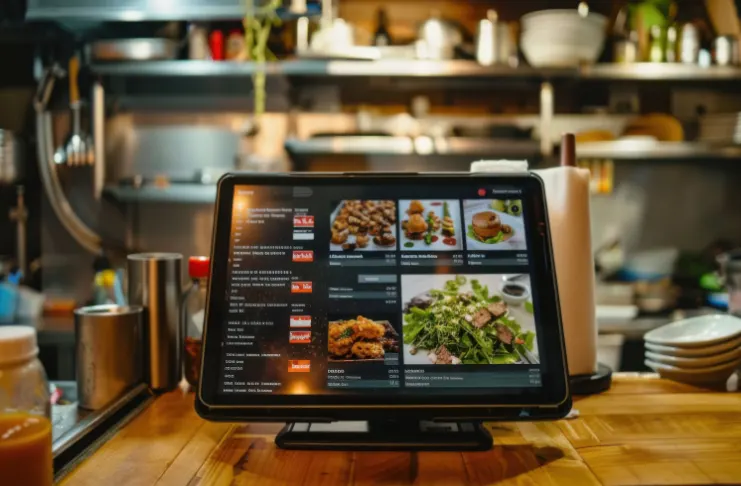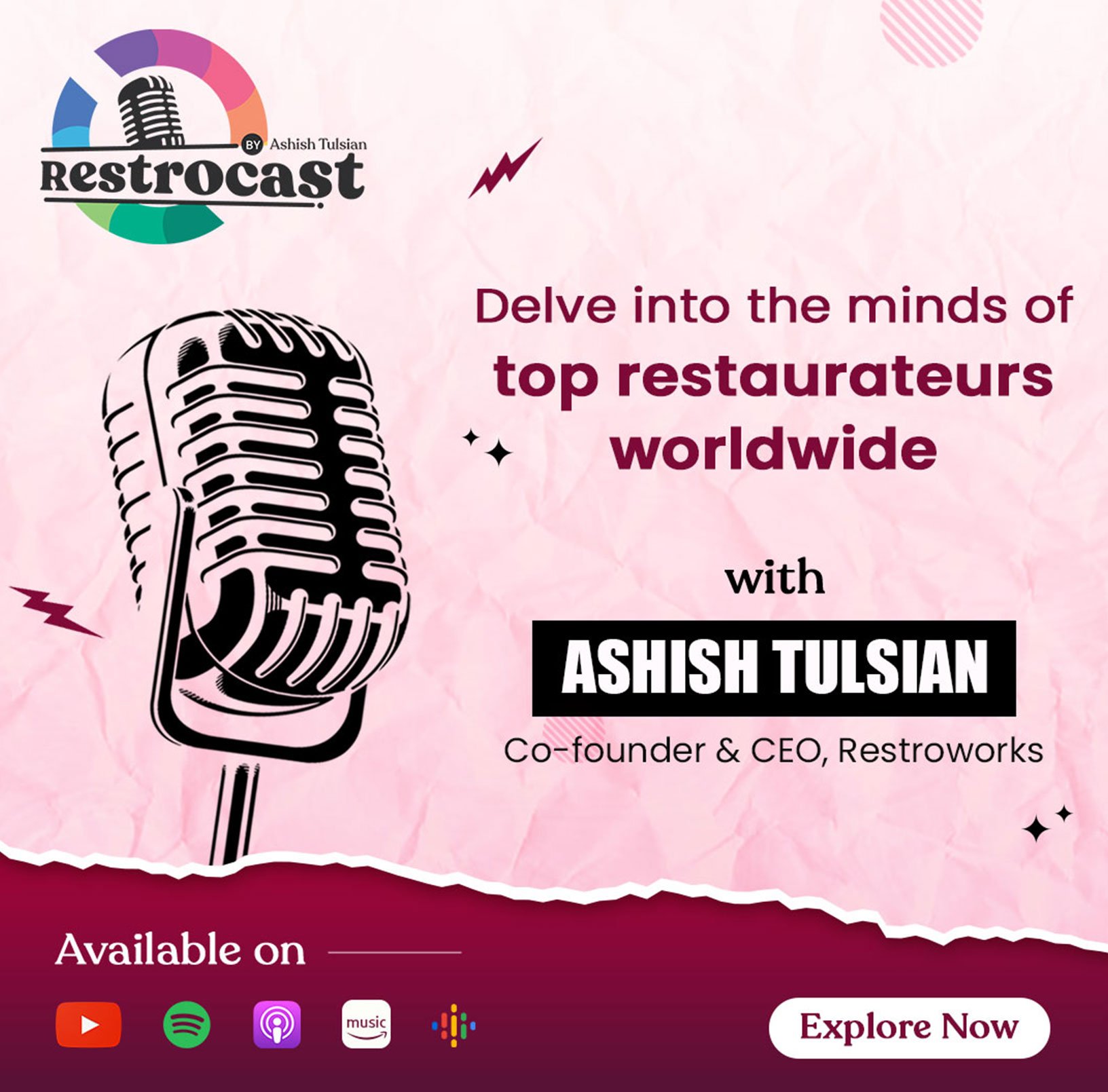
Restaurants thrive on relationships. Guests who feel recognized and appreciated are far more likely to return, recommend the restaurant, and spend more over time. That’s why CRM software has become an essential part of running a restaurant in 2025.
Instead of relying on memory or disjointed tools, a restaurant CRM helps operators keep track of guest preferences, order history, and feedback in one place. It makes it easier to design loyalty programs, run targeted promotions, and build the kind of experiences that turn one-time visitors into regulars.
In this blog, we’ll look at the best CRM software for restaurants to help you compare options and find the right fit that supports both guest satisfaction and long-term growth.
Why CRM Software Matters for Restaurants in 2025

Customer loyalty is increasingly hard to win and easy to lose. With more dining choices available and digital platforms shaping guest decisions, restaurants can’t afford to treat customer management as an afterthought. A well-implemented CRM system gives operators the tools to understand their guests, respond to their needs, and build stronger long-term relationships. Here are some of the reasons CRM is a critical investment in 2025:
- Evolving guest expectations: Diners are looking for personalized interactions, whether that means receiving tailored promotions, being rewarded for loyalty, or enjoying a consistent experience across dine-in and online orders. A CRM system allows restaurants to respond to these expectations at scale, without adding operational complexity.
- Data-driven decision-making: CRMs consolidate guest information such as order history, visit frequency, and preferences. This gives operators a clear picture of who their best customers are and how to design marketing, menu updates, and promotions that resonate with them.
- Loyalty and retention: Repeat guests are often the financial backbone of a restaurant. By tracking customer behavior and offering rewards, CRMs make it easier to keep guests coming back.
- Integration with POS system: A modern restaurant ecosystem spans in-house dining, online ordering, and delivery platforms. CRM software connects these touchpoints so operators can manage customer engagement across every channel without duplication or data silos.
- Predictive analytics: The most advanced CRMs go beyond basic data collection. They use automation and predictive analytics to forecast guest behavior, identify preferences, and suggest the best offers. This future-focused approach ensures restaurants stay ahead of shifting consumer habits.
INDUSTRY INSIGHT
The National Restaurant Association’s 2024 State of the Industry Report indicates that 73% of restaurant operators increased their technology investments in 2024, marking the highest rate of digital adoption in the sector’s history.
Best Customer Relationship Management Software for Restaurants
With a wide range of choices in the market, choosing the best restaurant CRM system might be overwhelming, but is highly essential for restaurants aiming to improve guest engagement, streamline operations, and boost profitability.
Given this, here are the top CRM software for restaurants in 2025-
1. Restroworks
Restroworks is an all-in-one restaurant management solution for businesses of all sizes to manage both front-of-house and back-of-house operations seamlessly while keeping customer experience at the center.
Beyond CRM functionality, it features robust POS capabilities, inventory and kitchen management, digital ordering channels, analytics, and reporting. With Restroworks, restaurants can track sales in real time, monitor inventory levels to reduce waste, manage food costs efficiently, and handle multi-location operations without losing visibility.
By integrating operational management with CRM functionality, Restroworks ensures that every interaction, from frequent dining and digital orders to table reservation and feedback, is informed by accurate, real-time data. This enables restaurants to deliver personalized services without adding to staff complexity, making it easier to retain guests and grow revenue.
Key Features:
- Guest profiles and order history: Restroworks lets you capture detailed guest information, including contact details, dining preferences, order history, and visit frequency. This centralized data enables personalized service and targeted marketing efforts.
- Loyalty program integration: The platform offers seamless integration capabilities with loyalty program tools, allowing restaurants to reward repeat customers and encourage return visits, thereby boosting customer retention.
- Reservation and table management: Restroworks features built-in table reservation and management tools, ensuring smooth guest experiences from booking to seating.
- Digital ordering ecosystem: With features like QR ordering, food delivery apps, and self-service kiosks, it connects various ordering channels, providing a unified view of guest interactions.
- Analytics and reporting: The platform offers real-time analytics and over 200 customizable reports, providing insights into guest behavior, sales trends, and operational performance.
- Open API and integrations: With support for over 500 integrations, the software ensures seamless connectivity with POS systems, delivery platforms, and marketing tools.
Pros:
- Centralizes all guest data for easy access and personalized service
- Streamlines operations with combined POS and CRM tools
- Provides actionable insights with analytics and reporting
- Supports multi-location management from a single interface
- Connects seamlessly with third-party apps and digital ordering channels
- Reduces manual work and improves staff efficiency
Pricing: Customizable pricing plans available, depending on the business requirements
Rating: G2- 4.8/5
2. EatApp
EatApp is a reservation and table management platform that also extends into CRM functionality, helping operators capture detailed guest information and manage loyalty initiatives. It focuses on simplifying restaurant operations while keeping the guest experience seamless. By connecting bookings, guest profiles, and marketing tools in one system, EatApp ensures that every interaction, from a reservation to a follow-up promotion, is informed and coordinated.
Key Features:
- Centralized guest data: Combines reservations, dining preferences, and visit history into one profile for each guest.
- Advanced CRM tools: Segment guests based on orders and personalize communications to drive repeat visits.
- Guest feedback: Automatically collect guest feedback via SMS, email, and WhatsApp surveys and follow up on negative feedback with personalized messaging.
- POS and channel integrations: The platform syncs with point-of-sale systems and online ordering platforms for a unified operational view.
Pros:
- Easier management of reservations and guest data
- Improves guest satisfaction through personalized experiences
- Smarter marketing campaigns with automation and insights
- Better table utilization and operational efficiency
Pricing: EatApp offers paid plans starting at $34/month.
Rating: G2- 4.7/5
3. HubSpot CRM
HubSpot CRM takes a broader approach, offering a full suite of marketing, sales, and service tools that restaurants can adapt to their needs. The tool centralizes all customer interactions, whether emails, chats, or feedback, into one platform. Restaurants can use HubSpot to track guest engagement across campaigns, automate follow-ups, and analyze trends to improve customer loyalty and operational decisions.
Key Features:
- Contact management: Store unlimited customer profiles and track every interaction with guests, including reservations, inquiries, and past orders.
- Email marketing: Restaurant owners can use email marketing tools to send highly personalized campaigns based on customer behavior.
- AI overviews: Rely on advanced AI to identify important information, flag issues such as missing data, and share insights.
- Extensive integrations: Connects with top third-party apps, including POS, email, and online ordering systems, to streamline operational workflows.
Pros:
- Centralizes visibility of all guest interactions
- Streamlines marketing and communication processes
- Boosts engagement through automated campaigns and timely responses
Pricing: The paid plans for HubSpot CRM start at $20/month per seat.
Rating: G2- 4.4/5
4. SevenRooms
SevenRooms is a comprehensive CRM and guest experience platform designed to help restaurants build direct relationships with their guests, drive revenue, and enhance the guest experience. It offers a suite of tools that integrate reservations, guest profiles, marketing, and operations into a single platform, providing restaurants with a 360-degree view of their guests.
Key Features:
- Centralized guest profiles: Automatically builds detailed guest profiles by gathering data from every touchpoint, from reservations and past orders to automated feedback surveys.
- Smart segmentation: Use auto-tags and smart segmentation to categorize guests based on preferences, behaviors, and visit history, enabling personalized service and marketing.
- Integrated marketing tools: Offers email, SMS, and referral marketing capabilities to engage guests with targeted campaigns and promotions.
- Detailed insights: Provides actionable insights into guest behavior and preferences, helping restaurants make data-driven decisions to enhance service and increase revenue.
Pros:
- Enhances guest personalization
- Increases revenue via targeted marketing campaigns and promotions
- Improves operational efficiency through seamless integrations
- Data-driven decision-making supported by AI-powered insights
Pricing: Custom pricing plans depending on the needs of the business
Rating: G2- 4.7/5

5. Toast
Toast is a comprehensive restaurant management system that combines point of sale (POS), CRM, marketing, and operations into a single platform. With built-in CRM capabilities, you can track guest details and manage orders directly from the POS system.
Key Features:
- Integrated POS and CRM: Combines POS functionality with CRM tools to capture guest data and track preferences, enabling personalized service.
- Loyalty and rewards programs: Offers a built-in credit card-linked rewards system that allows restaurants to reward guests for repeat visits and encourage customer retention.
- Online ordering and delivery integration: Seamlessly integrates with online ordering platforms and delivery services to expand reach and increase sales.
Pros:
- Streamlined operations through integrated POS and CRM systems.
- Increased customer retention via loyalty and rewards programs.
- Enhanced guest engagement through marketing automation tools.
- Expanded sales channels with online ordering and delivery integration.
- Data-driven insights supported by comprehensive reporting and analytics.
Pricing: The paid plans start at $69/month.
Rating: G2- 4.2/5
6. OpenTable
OpenTable is a popular platform that connects restaurants with guests through its reservation system, guest relationship management (GRM), and marketing tools. With its wide consumer base, it helps restaurants boost their visibility in a competitive market.
Key Features:
- Reservation management: Allows guests to book reservations online, while restaurants can manage availability and seating efficiently.
- Guest relationship management: Provides tools to capture guest preferences, track visit history, and personalize service.
- Automated marketing campaigns: Offers email campaigns, promotional offers, and reminders to engage guests and encourage repeat visits.
- Pre-shift reports: Delivers automated reports to staff, highlighting VIP guests and special requests to ensure personalized service.
Pros:
- Increases guest bookings through a widely recognized reservation platform
- Enhances guest personalization
- Streamlines operations with extensive integrations and centralized management.
Pricing: OpenTable offers three pricing plans, starting from $149/month.
Rating: G2- 4.4/5
7. Resy
Resy empowers restaurants to improve their guest experiences with a comprehensive suite of tools that streamline operations. At the core of Resy’s offerings is ResyOS, a robust platform that integrates reservations, guest profiles, event management, and analytics into a unified system.
This integration allows restaurants to build stronger connections with their guests by accessing guest data, collecting feedback, and personalizing interactions.
Key Features:
- Flexible reservations: Manage bookings with automated waitlists, real-time notifications, and smart table optimization to maximize seating efficiency.
- Event management tools: Plan and promote events with customizable pages, reservation tracking, and integrated communication features.
- Advanced analytics: Gain insights into guest preferences, cover counts, and VIP tracking to make informed business decisions.
- Guest surveys: Send private, automated surveys to collect customer feedback and refine your operations for enhanced experience.
Pros:
- Streamlines front-of-house operations with smart table management
- Event management tools help drive additional revenue streams
- Help optimize staffing, seating, and marketing strategies
Pricing: Resy provides three pricing plans, starting with the Basic plan at $249/month.
Rating: G2- 4.1/5
How to Choose the Right CRM for Your Restaurant

Selecting the right CRM system can make a significant difference in how effectively a restaurant engages with guests, drives repeat visits, and streamlines operations. Not every CRM is suited to every restaurant, so operators must evaluate solutions carefully across several key factors.
1. Size and Type of Restaurant
The role a CRM plays can shift dramatically depending on a restaurant’s format. A fine-dining spot may need detailed guest histories tied to reservations, while a quick-service brand benefits more from loyalty tracking and mobile ordering insights. So, consider your format-specific requirements before choosing CRM software.
2. Budget and Scalability
Different CRM solutions offer varying pricing options, from cost-effective platforms to enterprise-grade systems with extensive features. Consider both your current budget and growth plans. Invest in a scalable solution that can support your business as it expands to avoid costly migrations in the future.
3. Integration with Existing Systems
A CRM that integrates seamlessly with your POS, delivery apps, online ordering platforms, and marketing tools saves time and reduces errors. Unified data across systems ensures accurate reporting and a holistic view of customer behavior, which is critical for personalized marketing and operational efficiency.
4. Ease of Use
Some CRMs are highly intuitive, requiring minimal training, while others offer in-depth customizations and advanced features. Evaluate your team’s technical capacity and the level of automation or reporting sophistication you need.
5. Vendor Support and Training
Reliable vendor support, onboarding assistance, and training resources are essential for successful CRM adoption. Ensure that your provider offers responsive support and resources to help your staff get the most out of the system, from setup to advanced functionality.
Conclusion
As restaurants continue to compete in a crowded market, operators who treat their CRM as a strategic partner rather than a back-office tool gain a real advantage. Insights drawn from guest behavior can shape menu planning, staffing, and marketing in ways that help boost restaurant growth and dining experience.
Ultimately, the right CRM transforms everyday interactions into actionable knowledge. Operators who are willing to invest in understanding and leveraging that data lead to smarter operations, more engaged guests, and sustainable growth that keeps pace with the evolving demands of the restaurant industry.
Frequently Asked Questions
Restaurants use a range of CRM systems depending on size and needs, including industry-specific solutions like Restroworks, SevenRooms, Toast, and EatApp. These platforms help manage guest profiles, customer loyalty programs, marketing campaigns, and operational insights to enhance customer engagement and retention.
The best restaurant management software integrates POS, CRM, inventory, and operational tools into a single platform. Restroworks stands out for its all-in-one capabilities, helping restaurants streamline front- and back-of-house operations, simplify workflows, and generate actionable insights to improve efficiency, guest satisfaction, and overall business performance.
The choice of the best software depends on restaurant size, type, and priorities. All-in-one platforms like Restroworks and Toast are ideal for full operational control, while tools like SevenRooms and OpenTable excel in reservations, guest management, and personalized marketing for enhanced loyalty.
For small restaurants, a CRM that is user-friendly, affordable, and scalable works best. Options like Restroworks, EatApp, and HubSpot CRM offer straightforward onboarding, automation, and robust customer data management features while allowing businesses to grow without requiring complex IT infrastructure or advanced customization.
The best CRM software depends on the restaurant business goals. For restaurants, solutions that integrate guest profiles, marketing, loyalty programs, and POS functionalities like Restroworks, SevenRooms, or Toast are highly effective.
OpenTable is primarily a reservation and table management platform, but includes CRM-like features such as guest profiles, visit history, and marketing tools. It allows restaurants to track and engage guests, but it is not a full-featured CRM with advanced automation or multi-channel integrations.
Globally, Salesforce is recognized as the number one CRM provider across industries for its robust features, scalability, and extensive integrations. In the restaurant sector, tools like Restroworks, SevenRooms, and Toast are preferred for their industry-focused capabilities.
The best reservation systems combine table management, guest insights, and marketing features. Restroworks, OpenTable, and EatApp are top tools that offer real-time booking, table layout management, and integration with POS and loyalty tools to enhance operational efficiency.








